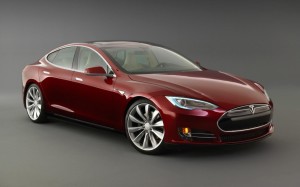For many, electric vehicles (EVs) are the wave of the future, they just need a little help to become the present. To that end, since 2014, Colorado has offered a $5000 refundable tax credit to purchasers of EVs. Unlike the complementary $7500 federal tax credit, that $5K comes at the point of sale, no matter the buyer’s tax bill.
Fortunately, a bill by Sen. Vicki Marble (R-Larimer/Weld), SB18-047, proposes to end this upward directed subsidy.
The overwhelming number of EVs are in the Denver-Boulder area, with another concentration up in Ft. Collins. The vast majority are in six wealthy Front Range counties. That means that the rest of the state is effectively subsidizing these purchases.
Not surprisingly, the geography correlates strongly with income. The EVs Tax Credit’s own proposal put the target household income at $100,000 per year. In 2014, when the credit was passed, the state’s median household income was only $58,000. That meant that the bottom 75 percent% of the state’s earners were paying for toys for the top 25 percent%.
Studies show that the single biggest psychological barrier to buying EVs is the purchase price, which the federal and state tax credits are supposed to address. But instead of creating a sustainable market, they merely prop up short-term sales. When the subsidies disappear, so do the EV buyers. When Georgia ended its $5000 state tax credit in 2015, EV sales dropped nearly 90 percent%. After China reduced its subsidies, BYD, the world’s largest EV maker, took a 34 percent sales hit. That’s not a sign of a healthy, sustainable market.
That barrier is beginning to come down, however. We’re now beginning to see EVs for sale in the low-$30,000 range, with those prices expected to drop even further over the next few years.
As those prices drop, one of the best arguments for discontinuing the credits is that they’re less economically necessary. When the plan was initially rolled out in 2012, the plug-in electric vehicle (PEV) readiness plan envisioned dramatic price drops by 2017, largely as a result of improvements in battery technology. Conservatively, they estimated that the price difference between PEVs and comparable internal combustion engine (ICE) vehicles would be between $3,600 and $11,000.
That seems to have largely happened, at least in some models. Compare the electric Nissan Leaf with the gas-powered Nissan Juke, which is in the same class of car. According to Edmund’s Online, the average price paid for a Leaf in Denver is $33,500. A comparable Juke goes for $20,100, a difference of $13,400. The difference in the five-year cost of ownership is considerably smaller, under $4000, easily covered by the federal tax credit alone.
![]() In the next few years, that gap should narrow even further. Maintaining these tax credits just reduces the incentives for battery and EV makers to bring down prices to competitive levels.
In the next few years, that gap should narrow even further. Maintaining these tax credits just reduces the incentives for battery and EV makers to bring down prices to competitive levels.
Another barrier to electric vehicle purchases is the dearth of refueling points. Unlike ICEs, drivers of EVs have to carefully plan their trips so they don’t run out of charge. As is often the case with government subsidies, distorting one part of the market creates other imbalances, which politicians then try to step in to address.
It’s not enough to boost the sales of EVs, now the governor also proposes creating a network of public EV stations. Currently, Colorado’s public EV stations are heavily clustered in the northern front range, with a few strung out along the interstates and some of the heavily-travelled US routes. Gov. Hickenlooper’s proposal would divert all of the $68 million Volkswagen emissions settlement to build a chain of Level 3 charging stations along the interstates. This at a time when the state is struggling to find money to relieve the daily traffic jams strangling hundreds of thousands of commuters.
EVs aren’t bad in and of themselves. But the state has far more pressing demands, that affect far more people.
It’s time to end this subsidy of the well-off by the rest of us. If we do end it, it’s more likely that the rest of us will be able to enjoy our own EV rather than simply being forced to subsidize one for someone who can already afford it. Ultimately, isn’t that what EV proponents want?
Joshua Sharf is a fiscal policy analyst at the Independence Institute, a free market think tank in Denver.


